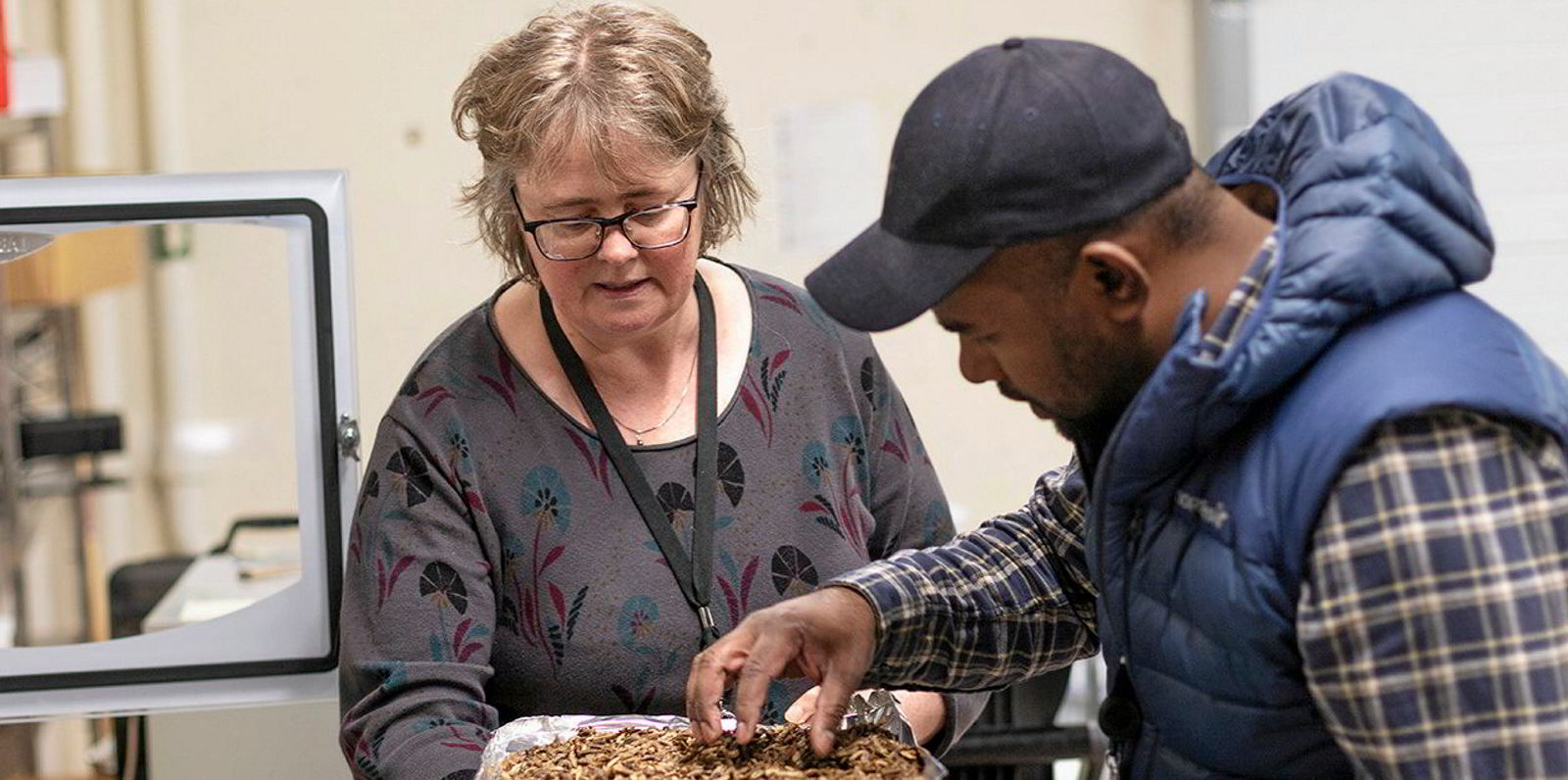Researchers from five countries have joined forces to develop a new type of salmon feed in response to the increasingly urgent need for farmed fish to be fed from ingredients not better utilized for other purposes.
The team will look at several combined alternative ingredients to replace plant and fish protein currently in use, including protein from black soldier flies and mealworms, and fats and red pigment from microalgae.
If the project succeeds the new feed will provide farmed salmon with a very similar diet to that which they live on in the wild, said Project Lead Mette Sorensen, a professor at Norway's Nord University.
The goal of the research is that the salmon will receive feed that is produced in so-called "sidestreams." This means other species must not be competing for the feed or for the medium in which it is grown. Plant-based feed ingredients, for example, use top soil, that arguably better utilized growing plants for human consumption.
A more sustainable feed would also reduce CO₂ emissions of salmon production, as feed accounts for a large part of the salmon sector's total emissions.
"Sidestreams can, for example, be organic waste from agriculture or other food production that can be used as a growth medium for, for example, the fly larvae," Sorensen said. The microalgae are plants that are found naturally in the sea, where they are eaten by zooplankton and eventually by fish.
Larvae from black soldier flies as well as mealworms will be used in feeding studies, which start early next year.
Read more
- This $132 million fund just invested in the shrimp sector, despite its initial reservations
- Aller Aqua forging a new path in emissions transparency for feed companies
- 'Feed costs should not be the farmer's problem': Cargill Aqua Nutrition's new president eyes new price models, M&A and a bold sustainability agenda

